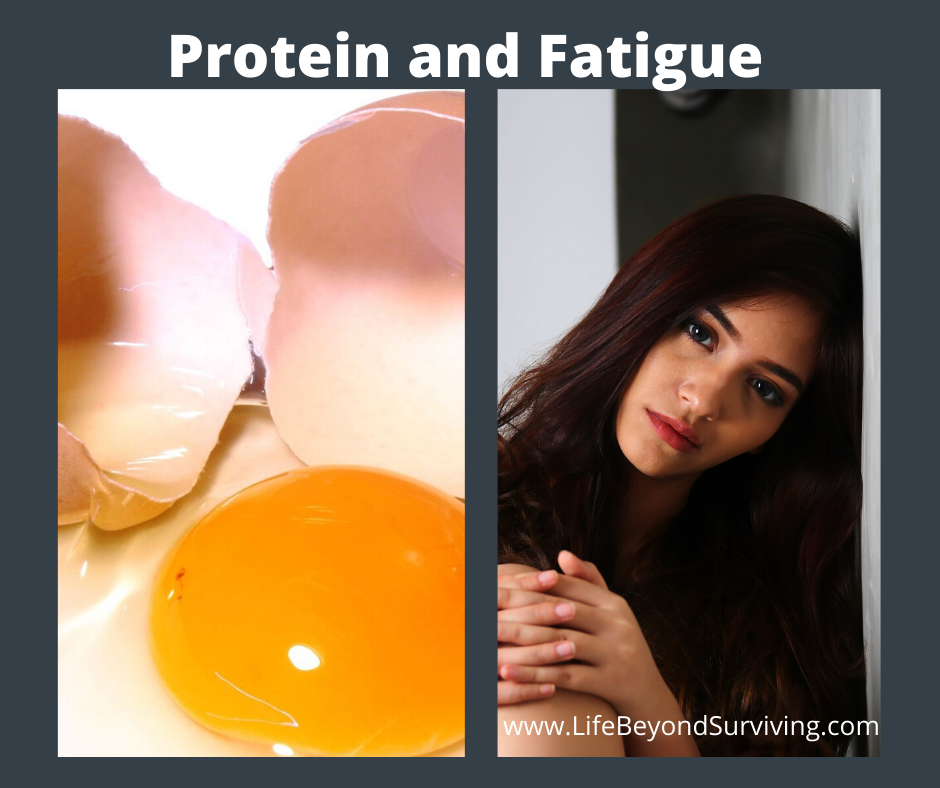I’ve been talking about exercise and diet as it relates to chronic illness this month. Last week I talked about my quest to find something that would allow me to lose weight. This week I’d like to share a sort of discovery I made that added more energy to my day.
I was talking about trying to find an eating plan for weight loss with my aunt when she mentioned that she was told to have protein shakes in place of meals. After looking into the kind she used, I found that there was some research that suggested that older women should have more protein than the RDA recommended.

Here is just some of the of the information I found:
“The current recommended dietary allowance (RDA) for protein is 0.8 grams per kilogram (g/kg) of body weight a day for adults over 18, or about 2.3 ounces for a 180-pound adult. But research is showing that higher levels may be needed for adults age 65-plus.” according to an article on Feb 12, 2018, called: How Much Protein Do You Need After 50? – AARP“
Further, the above article goes on to say: “In our older years, we are at risk of sarcopenia, which is the loss of muscle mass, strength and function. The essential amino acids in protein are key nutrients for muscle health, but older adults are less responsive to low doses of amino acid intake compared to younger people. A 2016 study from researchers at the departments of Food Science and Geriatrics at the University of Arkansas found that this lack of responsiveness can be overcome with higher levels of protein consumption. The study says that protein levels in the range of 30 to 35 percent of total caloric intake may prove beneficial, although the researchers acknowledge that level could be difficult to reach for many people.
People with sarcopenia may need 1.2 to 1.5 g/kg of protein a day, according to the Mayo Clinic; that’s 3.5 to 4.3 ounces for a 180-pound adult. It is also important to eat the right type of proteins, including some that include the amino acid leucine, which has been shown to preserve body muscle. “Leucine is found in higher amounts in animal foods: beef, lamb, pork, poultry, fish, eggs, milk and products made with milk. It’s also found in soybeans and, to a lesser extent, other beans, nuts and seeds,” according to an article on the Mayo Clinic’s website.”
From anther: “Researchers say that the percentage of protein in the diet had a positive relationship with pain threshold, meaning that subjects who ate more protein had higher pain thresholds. The pain threshold is the point at which sensation becomes painful, and a low threshold is associated with fibromyalgia” . according to an article, Vitamin E, Protein May Improve Fibromyalgia Symptoms, from Sept. 6, 2015
Armed with this information, I decided to have a high protein/low carb shake instead of breakfast and a high protein/low carb protein bar for one of my healthy snacks. What I found surprised me! After a short while, I began to feel more energy! Energy I hadn’t felt in many, MANY years!
As I mentioned last week, I had asked my doctor for her ideas for losing weight and she suggested I limit my calories to 1200/day. When I began keeping track of calories, I found I was only eating 900-1000 calories/day. Simply adding more protein, I began to feel more energy.
Something else I found was that actually eating more calories (the right kind of calories/foods) helped my weight loss program with my health coach. This got me thinking that those of us with chronic illness/conditions might actually need more protein or certain foods or kinds of calories to have more normal energy levels. I’m no doctor and I haven’t been able to find articles about this, but I plan to talk to my doctor about this when I go and this is why.
How many people with chronic illness fatigue have trouble doing normal activities? How many who are having good energy days fall off the energy wagon when they attempt to do exercise or housework or walking?
I also have Essential Tremors and I have noticed that, when I’m especially shaky, I feel especially tired. I’ve also noticed that many of my hot flashes are followed by an immediate lowering of my energy level. What if those of us with chronic illness fatigue need a higher amount of protein or a higher amount of calories from certain foods?
Has anyone else had better energy by eating more protein or more calories from particular foods? Is this a thing? Could this help Fibro? CFS? What say you?
Check back here next week for a look at food and chronic illness.


Interesting facts, JoJo. The naturopath really got on my case a couple of years ago about eating more red meat in particular–after I tested as having microcytic anemia.
The crazy thing was that I was already eating a lot of protein at the time. I just wasn’t getting the right balance.
Fats are important too–
What we need to be reducing are the carbs and sugars, which for me is an on-going struggle.
I’ve learned it’s very individual and it needs tweaking occasionally.
Thank you for this blog post! Will start increasing my protein. My chronic fatigue is especially bad on days over 85 degrees. Living in the Central Valley of California, that is ALL summer and into Autumn.
So glad it helped!
Hello there! I just want to give you a huge thumbs up for your excellent info you’ve got here on this post. I will be coming back to your website for more soon.
Thanks, Clay!
This is great! I am going to give it a try! What kind of protein drink did you have?
I have a different eating plan now, but I used Premiere brand. They were low in carbs but high in protein.
Thank you!